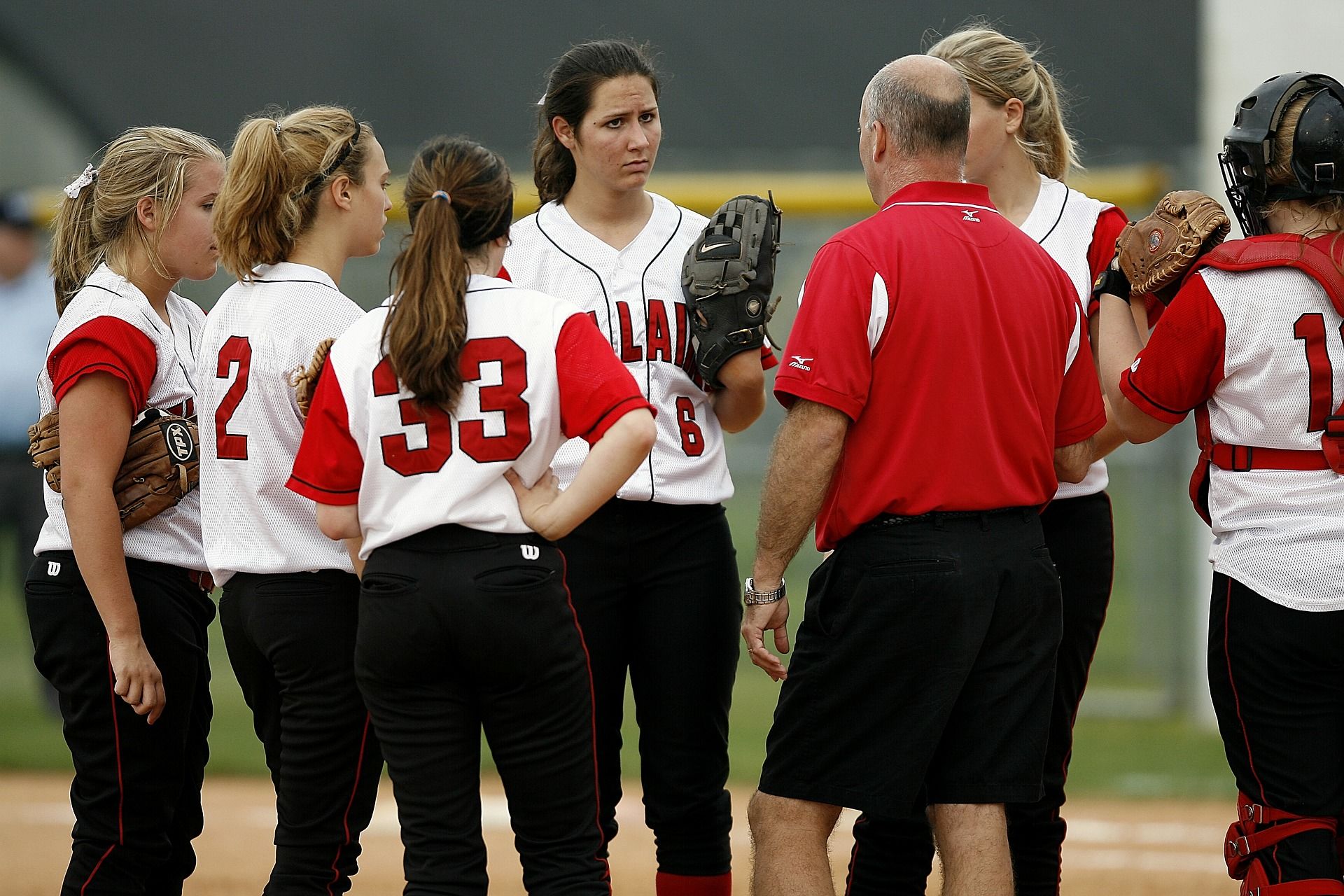
A study conducted at UCLA found that the impact of communication is 7% words spoken/written, 38% tone of voice and 55% body language. Keep this in mind when communicating to your team and remember that players and parents can detect a lot through body language. As a coach your communication is a key factor in motivating and guiding your players to success. Communication is a two way street, set a good example of communication and players will be more likely to replicate these habits.
You might already be an all star communicator but there is always room for improvement, so here are 5 Tips to Help Coaches Improve Communication:
Be a good listener – listening is just as important as speaking
It sounds pretty simple… but being a good listener takes practice. It doesn’t mean just silently nodding your head while someone talks but actively listening and acknowledging what they are saying. As a coach you should encourage players to ask questions and show interest in what they say. You will learn a lot more about your players by listening to their requests or concerns and promoting openness. Encouraging players to express themselves will help them feel more comfortable communicating and will help build trust within the team. Save a few minutes after practices for players to ask questions that will help them feel valued and heard.

Tailor communication depending on the level of sport
Be mindful of the age group and level of sport you are coaching. The experience children have with a coach from a young age will affect how they feel about a sport. Have you ever quit an activity because of a horrible coach? Create a positive experience for kids who are starting out and new to a sport. Be more patient with new players who are unfamiliar with the sport and need a little extra direction. Little league and younger age groups should emphasize fun, participation and basic learning. Older and more advanced levels of sport will focus on learning proper technique and how to improve skills.

Get everyone involved
Having overly passionate parents trying to coach from the sidelines is not what we mean by getting everyone involved. Parents still need to know their boundaries of when they should and shouldn’t be involved. Have regular meetings and allot appropriate times for parents to communicate any questions or concerns with you. Keep communication consistent – if there are messages you’re trying to convey to your players, make sure parents are aware so everyone is on the same page. Keeping coaches, trainers, players and coaches in the loop can help build stronger relationships and a stronger sense of community.

Reinforce sportsmanship
Nobody likes a sore loser. Of course, winning a game feels great but realistically you’re going to win some and you’re going to lose some. Being a positive example for your players will help them learn that winning isn’t everything and it is still important to have fun while playing the sport. If your team loses a game, take the time to tell them what they did well, what they learned from the game and what they can improve on. It is important to learn that sometimes results are not always what you expect them to be. Knowing how to be a good loser and a good winner is an important lesson to learn that can be carried on throughout life.

Nonverbal Communication
Being able to get your point across without saying anything is a key attribute for a coach. Here are a few suggestions to keep in mind when interacting with your players.
– Eye contact – maintain eye contact while speaking to show you are being attentive. Eye rolling is sometimes a habit people aren’t aware of but can have a negative effect on those around them. – Facial expression – Do you greet your players with a smile or do you have a sour face? A simple smile can go a long way to set a more positive tone and make you more approachable. – Tone of voice – It is not always what you say but how you say it. Think about your tone when conveying messages and how others might perceive it. – Posture – Are your arms always crossed? This might make you seem stand offish or less approachable to players and parents alike.
Communication off the field is important to maintain too – try PlayyOn’s Free Sports Management Software to promote continual communication with coaches, players and parents! Try it out and let us know what you think… we’re here to help you organize your team and improve communication!